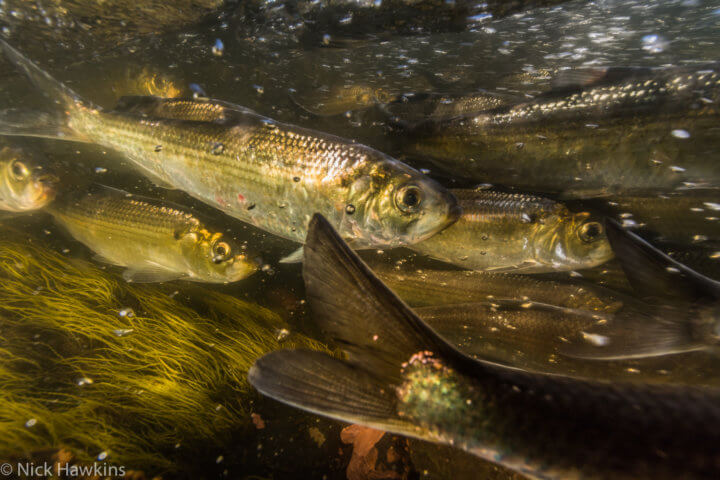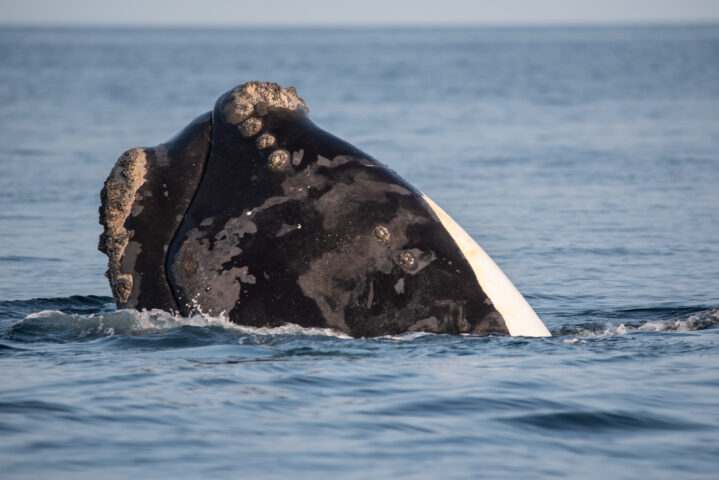More projects to restore critical coastal and marine habitat and increased protections for vulnerable wildlife like the endangered North Atlantic right whale are part of what Prime Minister Justin Trudeau dubs the Oceans Protection Plan 2.0.
The prime minister announced details of the next phase of the oceans plan in British Columbia this week. An additional $2 billion (over nine years) was earmarked in Budget 2022 to “establish 15 new measures to expand ocean protection initiatives to more regions and better proactively combat emerging threats to marine safety.”
According to the government’s release and website, the now $3.5-billion oceans plan will:
- Enhance protections and restoration of vulnerable marine ecosystems and wildlife such as Atlantic salmon and North Atlantic right whales;
- Update the Canada Shipping Act and the Marine Liability Act to better project marine ecosystems and strengthen the coast guard’s response to pollution and dumping by cruise ships and tankers;
- Improve management, regulation and enforcement of shipping traffic and ‘marine incidents,’ such as oil spills and tanker strikes on whales (including capacity-building support for the Marine Mammal Response Program); and,
- Advancing partnerships and training opportunities for Indigenous and coastal communities.
The Conservation Council expects the expanded Oceans Protection Plan will include measures to crack down on pollution and disease from open net-pen salmon aquaculture, support the development of sustainable fisheries and help fisheries and coastal communities deal with the impacts of climate change, such as the effects of ocean acidification on lobster in the Bay of Fundy and sustainable oyster aquaculture along the Northumberland Strait.
Phase one of the plan involved more than 50 initiatives, including six in New Brunswick funded to the tune of a combined $6.7 million.
By partnering with Indigenous nations and organizations with long established experience and relationships on the ground, the government of Canada is able to achieve a great deal more than it could on its own.
The Conservation Council and our Fundy Baykeeper, Matt Abbott, is honoured to be a partner in one of those projects, the Peskotomuhkati Nation-led restoration of the Skutik (St. Croix) River.
The project aims to restore fish habitat along the Skutik, Waweig, Magaguadavic and Letang rivers, especially for critical populations of migrating fish like gaspereau (alewife).

Like other river herring species, gaspereau are critical sources of food for just about everything in coastal waters and connecting rivers— from groundfish like cod and pollock, seabirds like puffins, marine mammals like humpback whales and porpoise, and even our Fundy Baykeeper.
Gaspereau also run up rivers far to the south of New Brunswick, so are well equipped to deal with warming waters. By restoring gaspereau and other searun fish, we give our coastal ecosystems a better shot at dealing with the added stresses from climate change.
Stay tuned to this space for updates on the Skutik river restoration and news on New Brunswick projects stemming from the second phase of the Oceans Protection Plan.
Quick facts:
- New Brunswick has 5,000 kilometres of ocean coast, 60,000 kilometres of major rivers and streams, and 2,500 lakes.
- Food fished from the ocean is critical to New Brunswick’s economy, with seafood exports valued at $1.7-billion.
- The Conservation Council has long advocated for better freshwater and coastal protection in our province, including full implementation of the province’s Water Protection Strategy and an update to the Coastal Areas Protection Policy.
- The Conservation Council is working with local, regional and national allies to better protect the Bay of Fundy through the establishment of new Marine Protected Areas, including collaborating on the upcoming global conference held this year in Vancouver, B.C., the International Marine Protected Areas Congress (IMPAC5).

